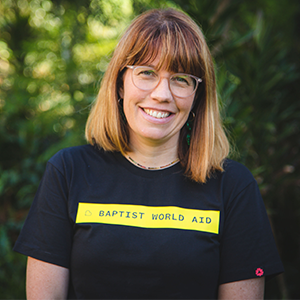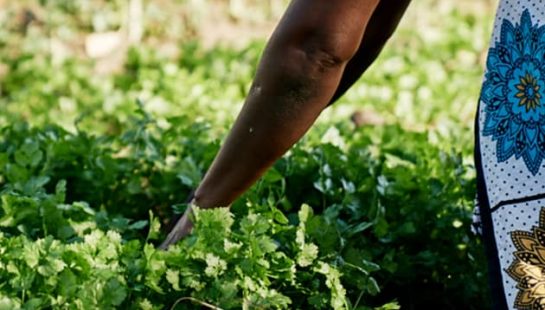Cooking dinner for your family or friends doesn’t just happen. It takes planning, knowledge, resources—and a good dose of creativity.
It’s the same with solving a complex problem like world hunger.
With up to 811 million people not having enough to eat, we are in the middle of a global food crisis. According to Amina Mohammed, United Nations Deputy Secretary-General, food insecurity is now at a record high.
‘The war in Ukraine has combined with the climate crisis, the impact of the COVID-19 pandemic and the unequal recovery to create a perfect storm of needs in developing countries,’ she said. And it’s having a devastating impact on people’s lives, as parents can’t afford to send their children to school and families fall further into poverty.
Five Ways We Can Help End The Hunger Crisis
Thankfully, God has provided us with the creativity and resources we need to end hunger, and nourish those living in areas where food insecurity is rife.
Our Christian Partners in Kenya, for instance, are helping farmers find innovative ways to feed their families and earn an income, even as the country faces its fourth season of drought. Staff members Nzuki, Paul and Charles share five ways they are helping communities grow their own food, so they can eat.
1. Sustainable Farming
One way that farmers can continue producing crops, even in times of drought, is through conservation agriculture: a farming system with minimal tillage, so the soil is left undisturbed over planted seeds.
Conservation agriculture conserves nitrogen and water in the soil, which improves farming efficiency and encourages greater biodiversity on the land. This increases a farmer’s yield while reducing reliance on fuel and fertiliser, which are expensive and hard to come by.
‘Farmers who adopted these practices have harvested something they can sell,’ Nzuki says. ‘They are able to smile because they are getting something from their farms.’
2. Establishing Water Sources
Rising food prices means many families struggle to eat fresh vegetables, which leads to malnutrition and long-term health problems.
One solution is helping families start kitchen gardens and domestic farms by establishing water sources for easy irrigation. ‘We are training farmers in small-scale irrigation to ensure increased access to vegetables to boost their nutritional status,’ Paul said.
Having sources of water close by also means farmers don’t have to spend time away searching of water, leaving more time for family and other economic activities.
3. Creating New Livelihoods
Women in vulnerable regions are now diversifying their farming to boost their income, feed their families, and continue sending their children to school.
Our Christian Partner is helping women raise goats and start poultry farms, as both animals require smaller amounts of water and food.
According to Charles, they are also training farmers in honey production. ‘A bee can travel distances to look for water, so you don’t need a lot of rain,’ he explained. ‘Some of the disability and women’s groups are picking it up. We are supporting them, so it can be a source of income to the community.’
4. Innovative Crops
When our Christian Partner began adopting practices from the Kenya Agricultural Research Institute, which promotes innovative farming to help families grow enough food to eat and sell, they knew they could be more effective.
One solution they have helped farmers implement is drought resistant seeds. Certain types of green grams (mung beans) produce bigger yields in changing weather conditions.
‘If you get rains for two weeks and you have adopted these varieties, you are still able to harvest,’ Paul said. ‘They only require a maximum of 200ml of rainfall; the average crop requires over 250ml.’
5. Savings And Loans
Savings and Loans schemes also help farmers who want to adopt new ways of farming, but don’t have the resources.
Families can save part of what they earn, so they only need to borrow small amounts to set up new businesses, send their children to school and feed their families.
‘Farmers have the will and zeal, but credit is a challenge to them,’ Paul said. ‘With Savings and Loans Schemes, farmers are now able to access loans . . . they buy goats and beehives, which enables them to support their livelihoods.’
Want to help families find innovative solutions to problems like global hunger?
Baptist World Aid Australia’s Christian Partners run development programs that change entire communities. A monthly gift consistently provides whole communities with the support, resources and training they need to form plans to address the root causes of poverty. Give today.
This article first appeared in Sight Magazine on 8 July 2022



 Meredith Benson,
Meredith Benson,

 Jo Kadlecek
Jo Kadlecek